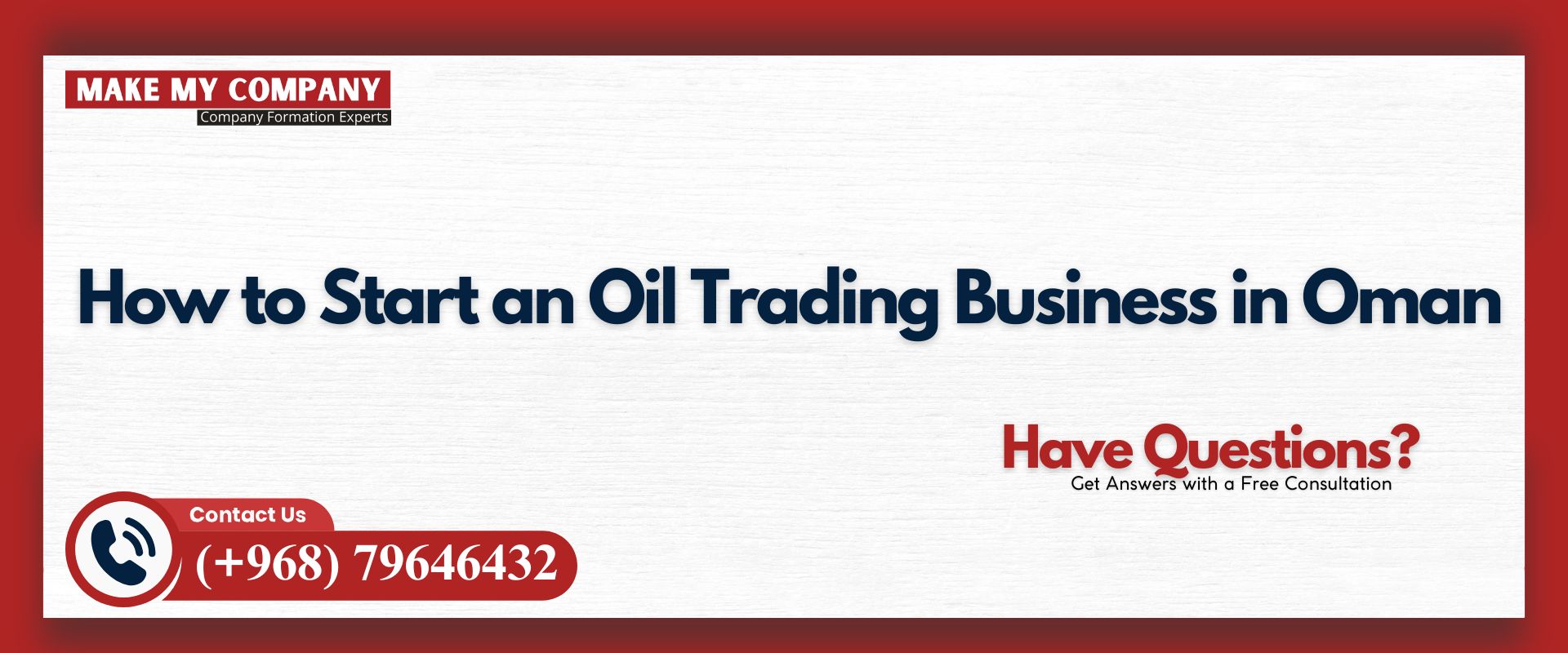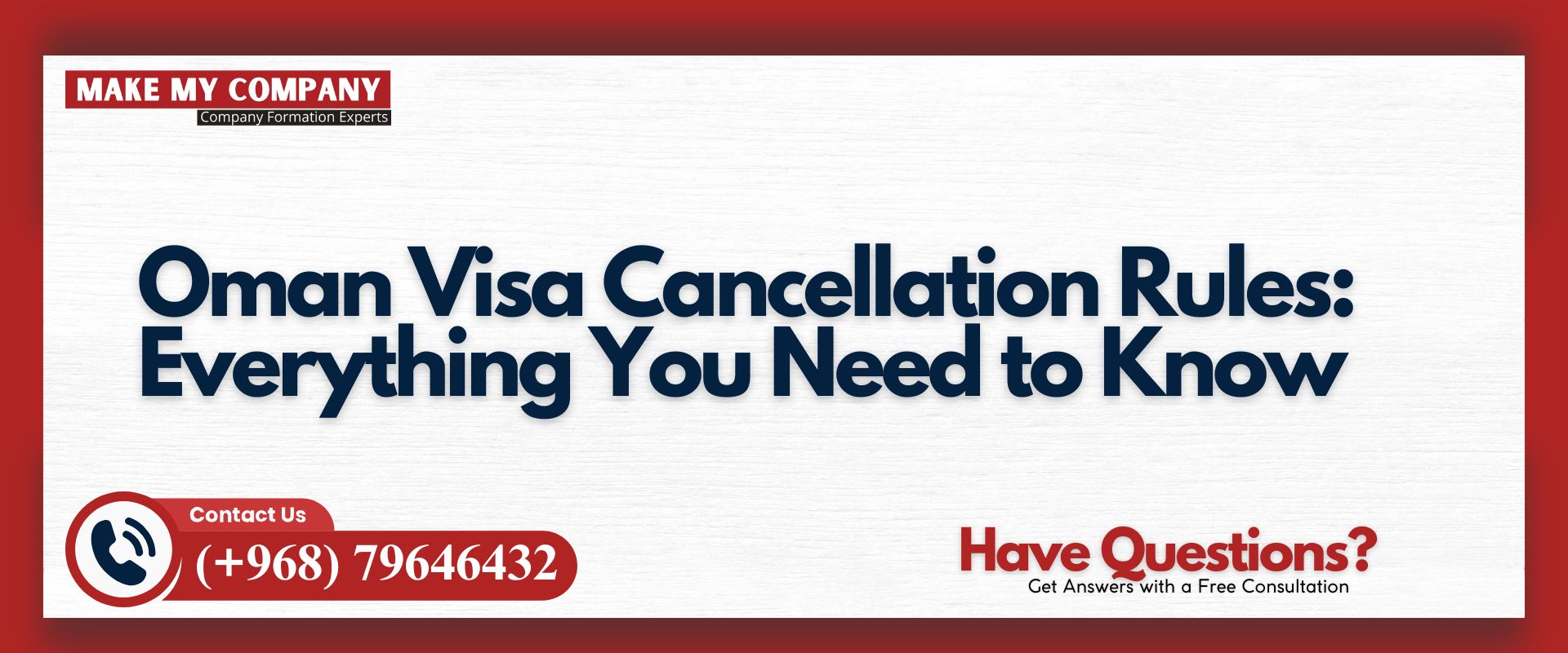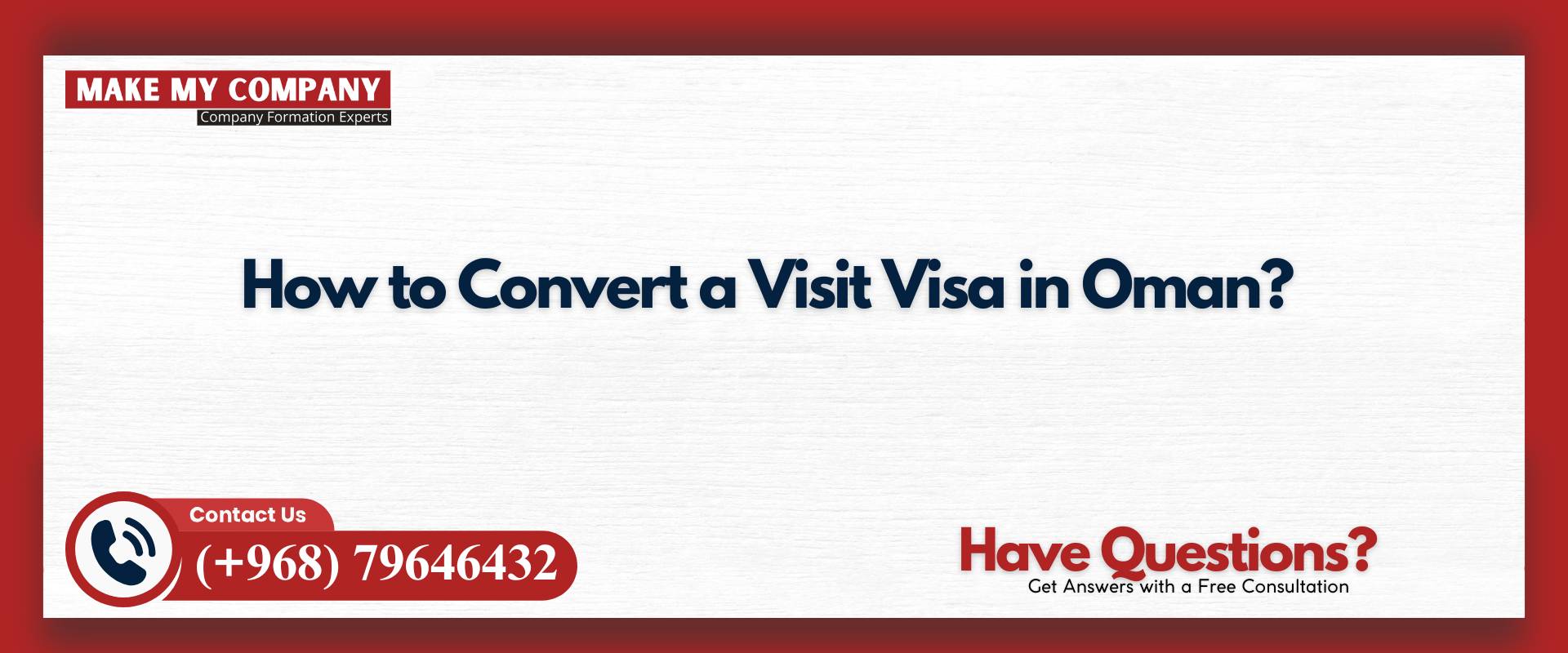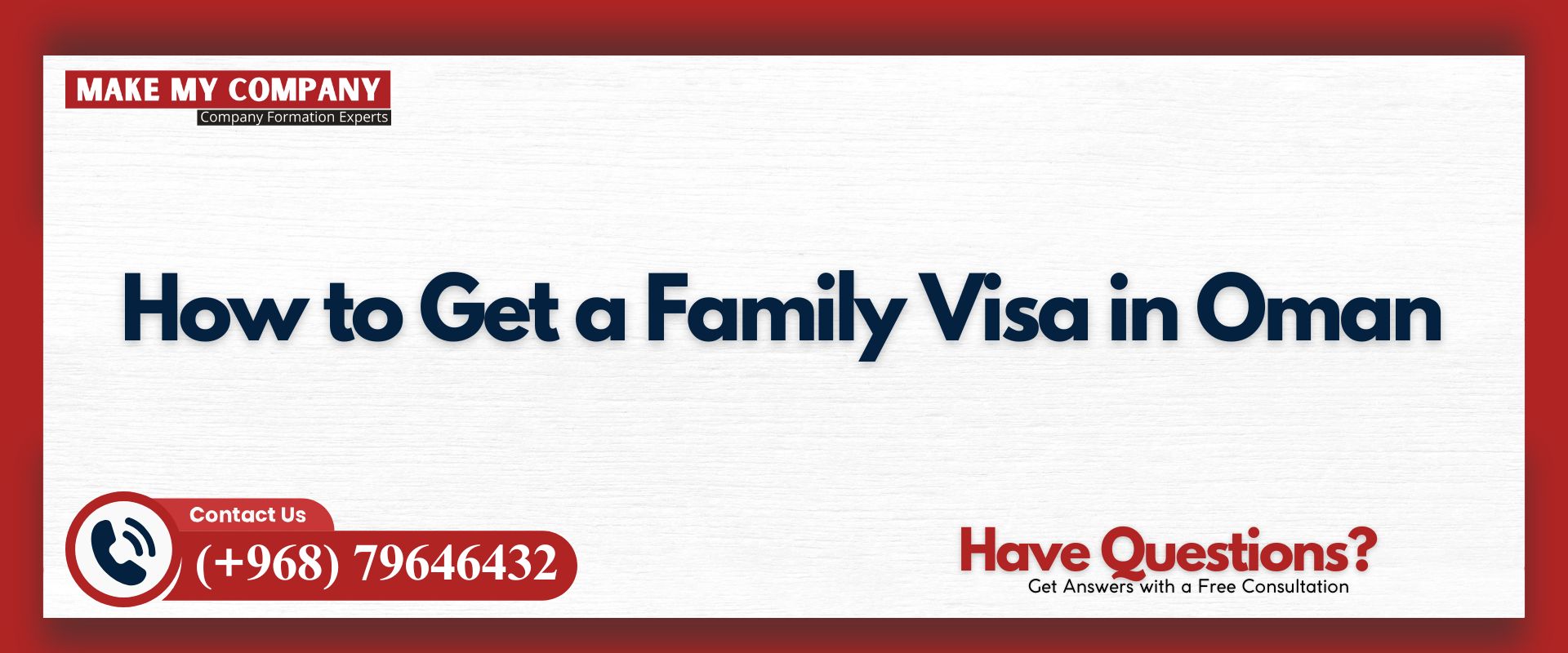Oman stands at the heart of the Middle East’s energy trade, making it one of the most attractive destinations for entrepreneurs and investors interested in oil and petroleum trading. Strategically located between Asia and Africa, with world-class ports like Duqm, Sohar, and Salalah, Oman serves as a global gateway for crude oil, petroleum derivatives, and refined products.
The oil and gas sector contributes significantly to Oman’s GDP, and while the nation is diversifying under Vision 2040, energy trade remains a cornerstone of the economy. For investors, starting an oil trading business in Oman is a lucrative opportunity—provided they understand the licensing procedures, regulatory framework, and market dynamics.
This guide explains everything you need to know — from company formation, licensing, and permits to investment requirements and compliance — to launch and operate a successful oil trading venture in the Sultanate.
Table of Contents
The Potential of Oman’s Oil and Energy Market
Oman’s hydrocarbon reserves, global trade relationships, and logistics infrastructure make it a major energy hub in the Gulf region.
Strategic Role in the Global Oil Supply Chain
Oman produces around 1 million barrels of oil per day and exports to markets in Asia, Africa, and Europe. Unlike some GCC nations, Oman’s energy policy encourages private sector participation in trading and distribution, offering a flexible and investor-friendly environment.
Expanding Downstream and Midstream Opportunities
The government is investing heavily in downstream sectors, including refineries, storage facilities, and petrochemical projects. The Duqm Refinery and Petrochemical Complex, one of the largest in the Middle East, has opened new opportunities for traders in crude, LNG, and refined petroleum products.
Supportive Government Policies for Energy Investors
Through the Ministry of Energy and Minerals (MEM) and Oman Energy Association (OPAL), the government promotes transparency, safety, and competitive participation in the energy sector. This ensures a stable business climate for foreign traders and local investors.
Understanding the Oil Trading Business Model in Oman
Before starting, it’s crucial to identify the type of oil trading business model that suits your investment and expertise.
Crude Oil Trading
This involves purchasing crude oil from producers and reselling it to refineries or exporters. It’s capital-intensive and often requires government approvals and partnerships with licensed entities.
Refined Petroleum Product Trading
This model focuses on trading gasoline, diesel, jet fuel, lubricants, and other derivatives. Many traders operate through storage terminals and transport contracts in ports like Sohar and Duqm.
Oil Equipment and Supply Trading
Investors can also trade in oilfield equipment, drilling supplies, and related products. This is a lower-risk model for those entering the market without direct oil product handling.
LNG and Gas Trading
Oman’s LNG exports have grown significantly, offering traders opportunities in liquefied natural gas and related commodities.
Understanding your niche helps determine the right business structure, licenses, and capital requirements.
Legal Framework for Oil Trading in Oman
The oil trading industry in Oman operates under strict regulatory supervision to ensure transparency, compliance, and safety.
Regulatory Authorities Overseeing the Sector
- Ministry of Energy and Minerals (MEM) – issues oil-related licenses and supervises energy trade.
- Oman Chamber of Commerce and Industry (OCCI) – provides business registration and membership.
- Royal Oman Police (ROP) – oversees transport and safety compliance for petroleum products.
- Oman Customs – manages import/export regulations for crude and refined oil products.
All entities involved in trading must comply with environmental and safety standards, as well as the Commercial Companies Law (Royal Decree 18/2019).
Licensing Requirements for Oil Trading Companies in Oman
Starting an oil trading company requires obtaining the appropriate trade license from the Ministry of Commerce, Industry, and Investment Promotion (MoCIIP) and related approvals from MEM.
Types of Licenses You Can Apply For
- Oil and Gas Trading License – for crude oil, diesel, gasoline, and derivatives.
- Petroleum Products Distribution License – for companies dealing with local supply and storage.
- Fuel Transport and Logistics License – for transportation of oil products across Oman.
- Oil Equipment and Spare Parts Trading License – for importing and selling oilfield equipment.
License Approvals and Conditions
Applicants must:
- Have a registered company in Oman.
- Submit a detailed business plan.
- Provide financial proof of investment capacity.
- Comply with safety and environmental regulations.
- Obtain necessary clearances from MEM and local authorities.
Step-by-Step Guide to Start an Oil Trading Business in Oman
Starting an oil trading company involves multiple government approvals and regulatory steps. Here’s the complete process:
Step 1 – Determine Your Business Model and Activity
Decide whether your business will focus on crude oil, petroleum derivatives, or oil equipment trading. Your chosen activity will determine the license category and capital requirements.
Step 2 – Register Your Company Name
Choose a trade name aligned with Omani naming regulations (no religious or political references). Register the name with MoCIIP to obtain the trade name certificate.
Step 3 – Draft the Business Plan
Prepare a detailed business plan highlighting your business objectives, market strategy, logistics, supplier network, and investment details. This document is essential for license approval.
Step 4 – Select a Legal Structure
Common legal structures in Oman for oil trading include:
- Limited Liability Company (LLC) – ideal for medium to large-scale trading ventures.
- Branch Office – suitable for foreign companies expanding operations.
- Joint Venture – for collaborations with local partners or Omani investors.
Step 5 – Submit the License Application
Apply to the Ministry of Commerce, Industry, and Investment Promotion (MoCIIP) for commercial registration and the Ministry of Energy and Minerals (MEM) for oil trading approval. Attach all supporting documents.
Step 6 – Obtain Environmental and Safety Clearance
Submit an Environmental Impact Assessment (EIA) to the Environment Authority (EA). Oil traders must comply with environmental protection regulations due to the nature of petroleum handling.
Step 7 – Register for Tax and Import/Export
Once your license is approved, register for VAT and corporate tax with the Oman Tax Authority (OTA).
For import/export activities, you must also register with Oman Customs for tariff and shipment approvals.
Step 8 – Secure Storage and Transport Facilities
Depending on your operations, lease or build storage tanks near ports or industrial zones. You’ll need ROP safety inspections and MEM approval for these facilities.
Step 9 – Start Operations
After completing all approvals, hire qualified staff, establish supplier contracts, and begin operations. Maintain proper accounting and safety records for periodic inspections.
Documents Required for Oil Trading License in Oman
To obtain the oil trading license, you’ll need to submit:
- Trade name reservation certificate.
- Passport copies of shareholders.
- Memorandum of Association (MOA) and Articles of Association (AOA).
- Proof of capital and financial statements.
- Detailed business plan.
- NOC (No Objection Certificate) if applicable.
- Lease agreement or office location approval.
- Environmental clearance certificate.
- Bank reference letter.
- Membership certificate from OCCI (Oman Chamber of Commerce and Industry).
All foreign documents must be attested and translated into Arabic before submission.
Capital Investment and Costs Involved
Understanding the financial requirements helps entrepreneurs plan budgets, secure funding, and ensure smooth operations in Oman’s oil trading sector.
Minimum Capital Requirement
The capital requirement depends on your business scale and license type. Generally:
- Oil Trading License: OMR 150,000 – 500,000
- Fuel Transport License: OMR 50,000 – 100,000
- Oil Equipment Trading: OMR 30,000 – 60,000
Setup and Operational Costs
| Expense Type | Estimated Cost (OMR) |
| License and Registration | 3,000 – 5,000 |
| Office Lease | 5,000 – 10,000 |
| Equipment & Safety Setup | 20,000 – 50,000 |
| Transport & Logistics | 15,000 – 30,000 |
| Employee Visas & Salaries | 10,000 – 25,000 |
| Insurance & Compliance | 5,000 – 10,000 |
The total investment may vary depending on your operational capacity and partnerships.
Business Activities Allowed Under an Oil Trading License in Oman
Holders of an oil trading license can engage in multiple business activities, such as:
Import and Export of Petroleum Products
Trading crude oil, lubricants, diesel, gasoline, and jet fuel within Oman and to international markets.
Storage and Distribution Services
Leasing or managing petroleum storage facilities and distributing oil products to retailers and industrial clients.
Fuel Transport Operations
Operating tanker trucks and ships for the domestic and international movement of petroleum and gas products.
Oil Equipment and Spare Parts Trading
Selling drilling tools, pipes, safety gear, and refinery equipment to energy companies across Oman.
Energy Consultancy and Brokerage
Providing advisory and brokerage services in the energy market, including price risk management and sourcing deals.
Taxation and Regulatory Compliance for Oil Traders
Adhering to Oman’s tax laws and industry regulations ensures transparency, business credibility, and long-term sustainability for oil trading companies.
Corporate Tax
Oil trading companies in Oman are subject to a 15% corporate income tax on net profits. However, companies earning under OMR 50,000 annually may qualify for small business relief.
Value Added Tax (VAT)
A 5% VAT applies to most goods and services related to petroleum trade and logistics.
Environmental and Safety Compliance
All oil trading companies must adhere to MEM and EA regulations. Regular safety audits, spill prevention measures, and emergency plans are mandatory.
Insurance and Risk Management
Businesses must have insurance for:
- Cargo and transport
- Public liability
- Environmental damage
- Worker safety
Best Locations to Establish an Oil Trading Business in Oman
Oman offers multiple strategic locations suitable for oil trading companies.
Duqm Special Economic Zone (SEZAD)
Home to the Duqm Refinery and port facilities, it’s ideal for large-scale oil trading and export operations.
Sohar Port and Free Zone
Sohar serves as a major industrial and logistics hub, perfect for storage and shipping of petroleum products.
Salalah Free Zone
Located near international shipping routes, it supports petrochemical trading and refinery-based exports.
Muscat Mainland
Suitable for administrative offices, consultancy firms, and trading companies serving domestic clients.
Advantages of Starting an Oil Trading Business in Oman
Oman’s oil trading sector offers immense potential for investors due to its strategic location, stable economy, and government-backed energy initiatives. Entrepreneurs can benefit from favorable tax laws, modern infrastructure, and access to international markets.
Strategic Global Position
Easy access to Africa, Asia, and Europe through Oman’s world-class ports, including Sohar, Duqm, and Salalah, strengthens global trade opportunities.
Stable Investment Environment
Transparent business regulations, political stability, and proactive government policies create a secure and investor-friendly atmosphere for oil trading ventures.
Tax-Friendly Policies
With 0% personal income tax and a low corporate tax rate, Oman offers a highly advantageous environment for maximizing business profitability.
High Market Demand
The growing domestic and export demand for petroleum products, natural gas, and refined fuels ensures consistent trading and expansion opportunities.
Infrastructure Readiness
Oman’s advanced logistics network, modern refineries, and specialized free zones provide the foundation for efficient and large-scale energy operations.
Common Challenges and Risk Factors
Identifying potential risks like price volatility, regulations, and logistics challenges helps investors develop strategies for success in Oman’s energy market.
Price Volatility
Global oil price fluctuations can impact profit margins. Solution: hedge through futures or diversify products.
Regulatory Complexity
Multiple approvals from MEM, MoCIIP, and EA can delay licensing. Solution: engage professional consultants to streamline the process.
Environmental Liability
Oil handling carries environmental risks. Solution: adopt strict compliance and invest in safety systems.
Competition
Established players dominate the market. Solution: focus on niche segments such as lubricants or specialized fuels.
Tips for Success in Oman’s Oil Trading Industry
- Build strong relationships with government authorities and refineries.
- Stay informed on Omani energy laws and international trade regulations.
- Invest in professional safety, logistics, and environmental management.
- Participate in trade fairs and oil industry conferences.
- Use technology for market analytics and automated trading.
Conclusion
Starting an oil trading business in Oman is a highly rewarding venture for investors ready to navigate regulatory procedures and market dynamics. With its strategic location, pro-investment policies, and strong demand for petroleum products, Oman provides the perfect platform for regional and international energy trading.
By following the correct licensing process, building strong partnerships, and maintaining compliance with industry standards, entrepreneurs can establish sustainable success in Oman’s energy market. For professional guidance on documentation, licensing, and setup, it’s always best to consult experts specializing in Setting up a Business in Oman — ensuring your oil trading company operates efficiently and legally from day one.
FAQs
Can a foreign investor own an oil trading business in Oman?
Yes, foreign investors can own up to 100% of the company, especially when registered in free zones or under the new commercial law.
What is the minimum capital required for an oil trading license?
It typically ranges between OMR 150,000 to 500,000, depending on the scope and type of license.
How long does it take to obtain a trading license?
The process usually takes 4 to 8 weeks, depending on document verification and ministry approvals.
Do I need environmental clearance for oil trading?
Yes, an Environmental Impact Assessment (EIA) is mandatory before commencing operations involving storage or transport of petroleum products.
Is Oman a good location for oil product exports?
Absolutely. Oman’s ports and free zones like Duqm, Sohar, and Salalah provide world-class facilities for exports to global markets.
What taxes apply to oil trading companies?
Corporate tax is 15%, and VAT at 5% applies to most trading activities.
Can I trade both crude oil and refined products?
Yes, but each category requires specific approval and license endorsements from the Ministry of Energy and Minerals.
Do I need local employees for my company?
Yes, under Omanization rules, certain job positions must be filled by Omani nationals.
What’s the best business structure for oil trading?
A Limited Liability Company (LLC) is the most suitable structure for medium to large oil trading firms.
Is the oil trading business profitable in Oman?
Yes, with proper licensing, strategic planning, and compliance, the oil trading sector in Oman offers long-term profitability and expansion opportunities.









